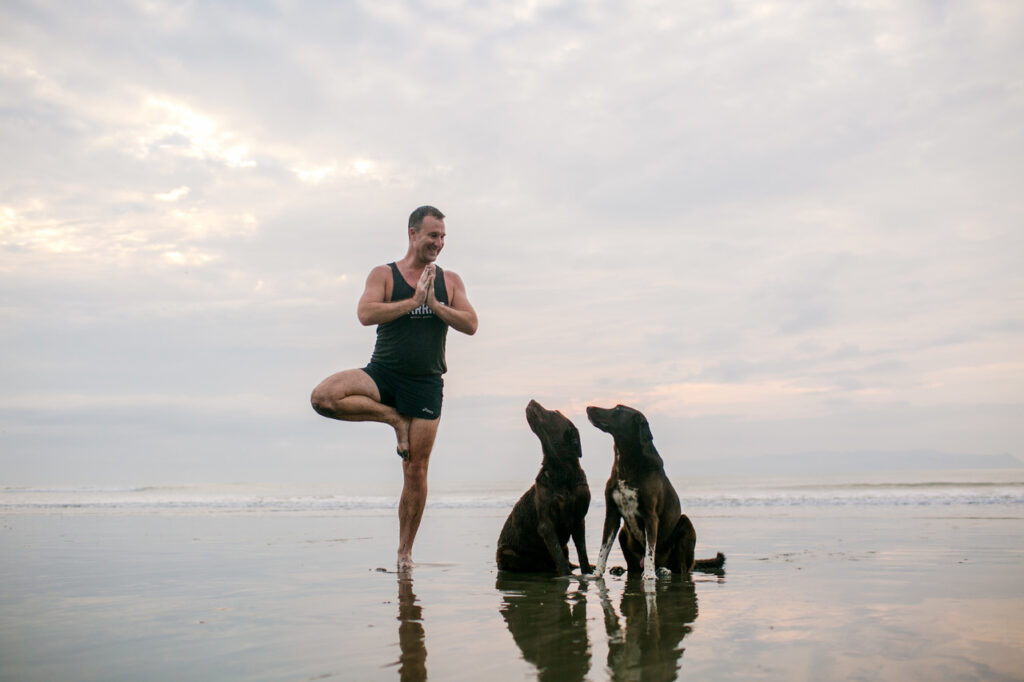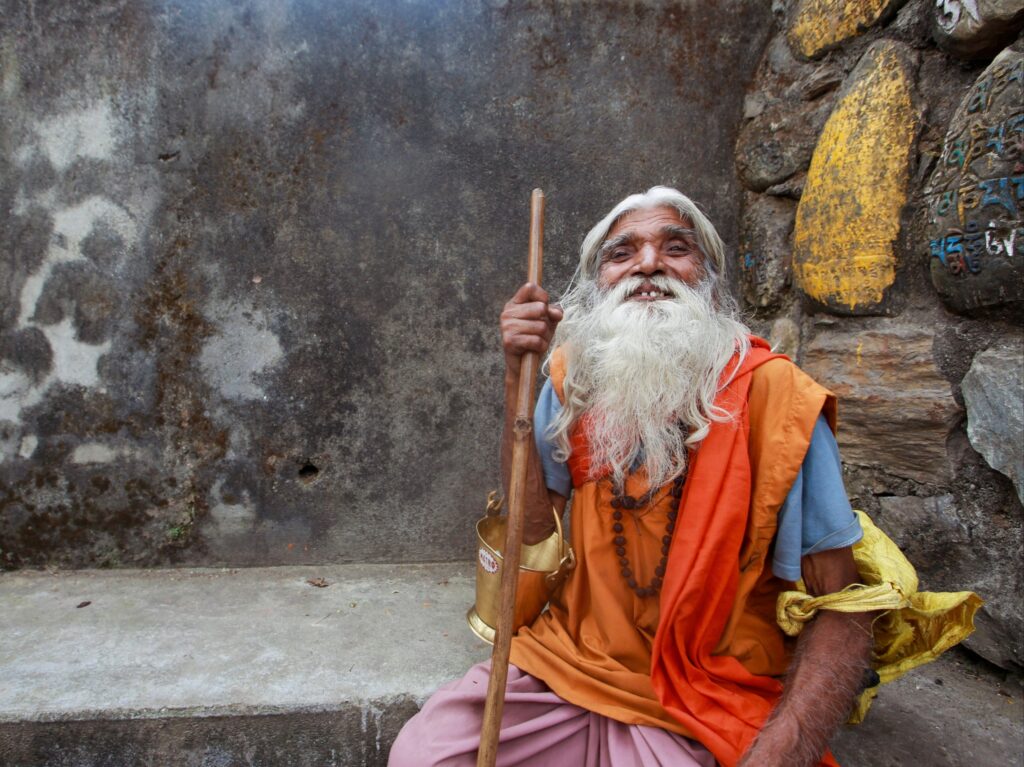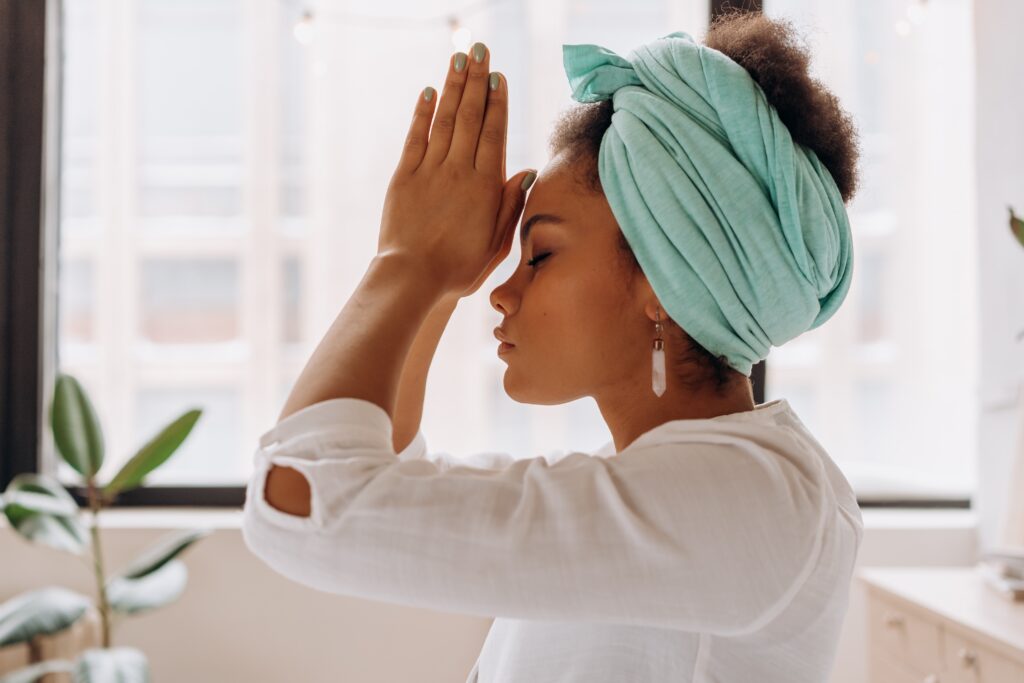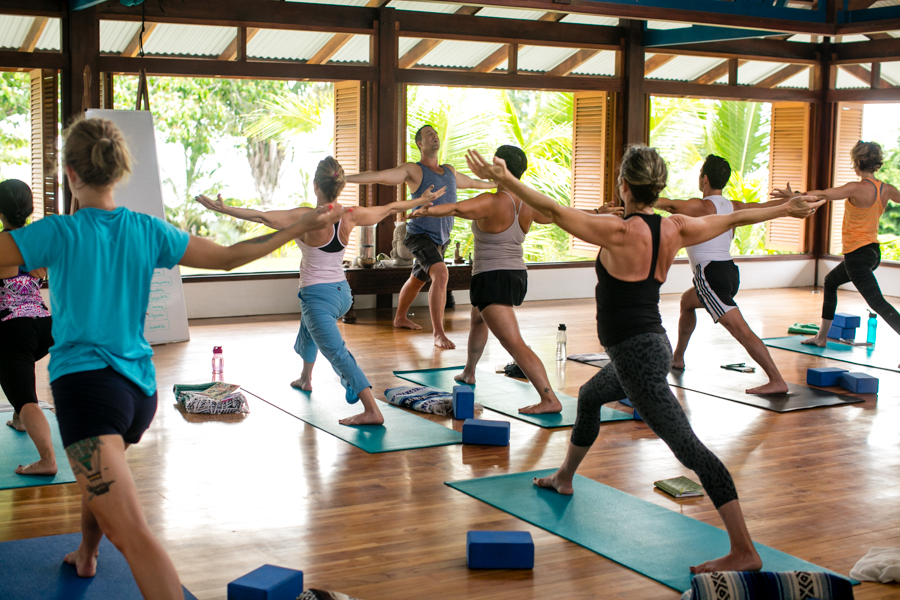
The need to have a spiritual guide is not new. Evidence for as long as man has roamed the earth, there have been people putting themselves in the role of teacher, religious leader, master, or guru. Perhaps it comes from this constant quest to figure out what our humanity is all about.
So what is new? Instant access to your own private guru. Gurus are now popping up everywhere in the form of yoga teachers. It appears that yoga teachers, by some inherent right of being called a ‘yoga teacher,’ are viewed with an esteemed reverence.
What do you call a yoga teacher?
Normally, a yoga teacher is someone who shows the students how to do each pose by example, walks around the room to help adjust and corrects them if needed. But our culture has elevated yoga teachers to a state of authority on everything. Yoga teachers are somehow expected to know so much and to be so perfect. They act as people’s therapists, both physically and psychologically. They are experts on everything related to anatomy and physiology. They are nutritional counselors. They are expected to be able to walk on our hands; if they don’t, well, then they are not good enough gurus.
So many yoga teachers barely have a 200-hour yoga teacher training under their belt. Why is it that yoga teachers are elevated to such unreachable standards?
Join The 200-hours yoga teacher training with Yogi Aaron!
Is a Yoga teacher a real Guru?
The word “teacher” or “guru” is so effortlessly given to the earnest yet untested yoga aficionado offering classes in the neighborhood gym. We forget to ask ourselves: What actually forms a yoga teacher? In turn, we possibly trust some under-qualified “gurus” to help us make enormous life decisions without a second thought.
I’m a lifelong yoga instructor, but I’m telling you: yoga teachers make the most unlikely gurus.

Who is a Guru?
According to Merriam-Webster, the definition of a guru is a personal religious teacher and spiritual guide in Hinduism. The first Guru, Guru Nanak was born in 1469 in Talvandi, present Pakistan. Being around 30, Nanak had a special experience: he felt being swept into God’s presence. From that moment he spent his life communicating spiritual insights. Nanak ended up settling down and gathering a community of disciples (Sikhs) around him. He was composing and singing poetic compositions.
How does social media affect our spiritual life?
So a Guru must be something more complex than a “simple” teacher. Why do people still believe talking to a Yoga teacher equals a piece of advice from a Guru?
In today’s running world more and more folks seek some spiritual guide. Throughout the history of yoga, Gurus took this rule. Nowadays people believe yoga teachers have enough knowledge to guide someone’s journey. Like everything, spiritual teachings have become wider as well.
We accept almost every quote on social media as spiritual guidance. Same with those yoga teachers: we expect them to share their life learnings, their spiritual philosophy, and prayers. And being honest, when everyone acts like a Guru, it is hard to find the real ones.

Here are five reasons why you should think twice before seeking those “gurus” advice:
1. They are not teachers.
Your yoga teacher, in all likelihood, is not really a ‘teacher’. They are your yoga instructors and they have typically completed a 200-hour training—500 hours if you are lucky. They know how to teach you postures. They probably know how to get your body into some sense of alignment. Your yoga instructor might have some simple understanding of how to teach basic breathing practices. (Prana Yama.) But they do not know how to align your life. Not only is it not fair to them to ask them to try, but it’s also not in your best interest to inquire.
“I absolutely believe it’s possible for people to learn yoga without a one-on-one relationship. In my lineage, not just anyone can have a one-on-one relationship with an Acharya/guru figure. You have to be a worthy, qualified disciple before you enter into that kind of engagement. A would-be disciple can work toward that worthiness by embracing a nine-step sadhana that every sincere seeker was asked to take before studying the sacred scriptures, such as the Yoga Sutras and Bhagavad Gita. This process may take up years from joining a lineage as a casual seeker to becoming a disciple with a direct relationship with the teacher.”
~ Acharya Shunya, the first woman acharya in her lineage and an internationally renowned Vedic teacher.
2. They never had a yoga ‘teacher’ or guru themselves.
One of the most important yet overlooked aspects of the yoga tradition is the student/teacher relationship. The teachers of this tradition had a ‘teacher’ not only to impart the lineage. But also to direct and guide the student through the proper steps of the practice. They were actually the guide – the guru – who dispelled the darkness.
For some, the word guru has taken on a dirty meaning. So many “gurus” have been known to take advantage of their position with their students. Their stories are widely known.
“From personal experience, having a ‘teacher’ is the only way I have ever grűwn as a student. While I have been blessed with a few teachers, (Alan Finger, Erich Schiffman, Genny Kapuler), only one has remained in my heart. When you meet your ‘teacher’, there is a cataclysmic shift in your entire being. Everything inside of you awakens, and life somehow becomes clearer. Only a ‘teacher’ steeped in tradition, who has also been guided in the practice, can offer that.”
~ YoGi aaRon, creator of AYAMA — Applied Yoga Anatomy + Muscle Activation™, yoga TEACHER for 30+ years, bestselling author, and owner and yoga director at Blue Osa Yoga Retreat in Costa Rica.
3. Does your yoga teacher have any life experience?
Don’t expect your yoga instructor to have had lots of life experiences that have taken root in their life. The wise ones know that for real wisdom to take place, real experience has to take place. Wisdom can only come from experience.
Yoga Teachers’ Life Experience
How many times have you been to a yoga class and the instructor has been 20 or 30 or even 40 years younger than you? Some of them are so young. Social media is full of “yogis” and “gurus”, and this is taking back so far. Just think of the Yoga Girl, who had millions of online followers even years ago!
Somehow, someone in a tight bikini doing handstands has been given the title Guru because they post such things as “Live your bliss!” and “Open your heart!”
I am sure these influencer yogis are wonderful people, inspiring many. And maybe they can even teach you how to stand on your hands. But that does not make them a Guru. Don’t confuse being a good, popular person with being a ‘guru’.
4. Being a yoga teacher is not their ‘real’ job.
While living in New York, I had the opportunity of meeting many performers-turned-yoga teachers. How many times I heard this or something similar: “I am in between acting gigs right now and teaching yoga is a lot more fun than waiting tables.”
Or how many people make a change to teaching yoga as a way out of their old career? “I don’t know what I am going to do with my life, so I thought I would start teaching yoga.” I still hear this sometimes. The list of yoga teachers is infinite. According to Thegoodbody.com, by the year 2022, there are currently 100,000 yoga teachers registered in the US, and 36 million Americans practice yoga!
It is surprising to see how many people assume the role of the “Guru” after a 200-hour teaching training. But what is more surprising is to see how many people are so ready to let that new teacher become their ultimate spiritual guide. And can you teach yoga without a certification? Unfortunately yes, many people start their carrier without an official document. But you probably have trouble finding a job as many studios require to have at least a 200-hour registered Yoga Teacher certification.
So is yoga teacher training worth it?
YES! If you truly love yoga, teacher training only can give you more. You will learn about anatomy, history, and spirituality, and with a certification, you have the chance to teach anywhere in the world, and even earn a salary!
Learn from the bests and register for our next yoga teacher training here!
5. They don’t have a personal practice
I very seldom ever take yoga classes anymore for one simple reason. Unfortunately, many yoga teachers today are ignorant of the historic tradition of yoga and its practices. The trend out there in the yoga world is this: Do a lot of arm balances, sweat a lot, and (maybe) attend some Kirtan. That is all there is to yoga. And when teachers start to veer off that track of information, it is clear that many of them have no factual basis for what they are talking about.

Yogi Aaron Yoga teachers
There are many practices in the tradition of yoga, and some of them are offered to us in our teacher training. For example, we can look at Nadi Shoddana, alternate nostril breathing. More than likely your yoga instructor learned this practice one day in their yoga teacher training as a pranayama technique.
But the practice of Nadi Shoddana Prana Yama must be practiced for a minimum of 20 minutes each day for three months.
Real practice leads to direct experience. And direct experience is the best source of true knowledge.
Join The 200-hours yoga teacher training with Yogi Aaron!
Be careful who you choose to look up to. Be cautious about who you choose as your guide and guru.
3 facts to consider when choosing your yoga teacher
Many can debate what should be the criteria for choosing a teacher. I can not speak for others, but my three guidelines are these:
1. Who was their ‘teacher’ and what is their lineage?
2. Are they thriving in their life?
3. How content are they?
When yoga teachers actually embrace another ‘teacher’ who can guide them on a journey of self-practice, it is the beginning of an initiation into a rich and deeply meaningful tradition dating back thousands of years. These ‘teachers’ are available to you. Sometimes they are in the open. But more often than not, they are in disguise, hidden, waiting for you to show up. Only the most earnest of seekers will find them.
Join The 200-hours yoga teacher training with Yogi Aaron!
Resources
Do Modern Yoga Students Need a Guru?
The Importance of a Guru on the Path of Yoga
41 Yoga Statistics: Discover Its (Ever-increasing) Popularity

Following on your blog, I looked around to see what is your lineage and who your teachers were, and could not find much. Can you direct me to the information? Thanks
Hi Marjana, I follow the Himalayan tradition. I have had many teachers in my life, and some were from the Himalayas. You can read about it in my book! Check it out. https://www.balboapress.com/en-gb/bookstore/bookdetails/711914-Autobiography-of-a-Naked-Yogi
I hear you on a lot of what your post is about. Transference – the projection of good qualities and positive valence onto a person in a position of power – is an important factor to be aware of as a teacher of any kind. But you lost me here:
“The practice of Nadi Shoddana Prana Yama must be practiced for a minimum of 20 minutes each day for three months.” … Says who? I understand and take your point that a 200-hour Teacher Training does not make anyone a master of ancient yogic practices or philosophy. But 5 minutes of Nadi Shoddana Prana Yama cause a big physical effect in the body, and can be transformative for students just learning how breath-control affects their nervous systems and can be used to self-regulate for physical and emotional well-being.
I have seen the effects of yoga-lite work magic on human beings in distress, in transition, and suffering from trauma. Whether you think it’s valid or not – it works, and it’s yoga.
Hi Tessa,
If you are practicing Nadi Shoddana with breath holds, you may cause a small disturbance. But we teach the practice using 1:1 breathing techniques, also known as pure breath.
My hunch is that you haven’t practiced it, or practiced it in this way. If you had, your understand and perspective would be different.
But again, this goes to the whole point of the article that so many unqualified people are making ludicrous claims. If you want a quality teacher, it takes time to find one.
Irrespective of our perspectives and experiences, we both can agree on what you said.
I have seen the effects of yoga-lite work magic on human beings in distress, in transition, and suffering from trauma. Whether you think it’s valid or not – it works, and it’s yoga.
I too have witnessed the power of yoga and its ability to heal and transform.
??